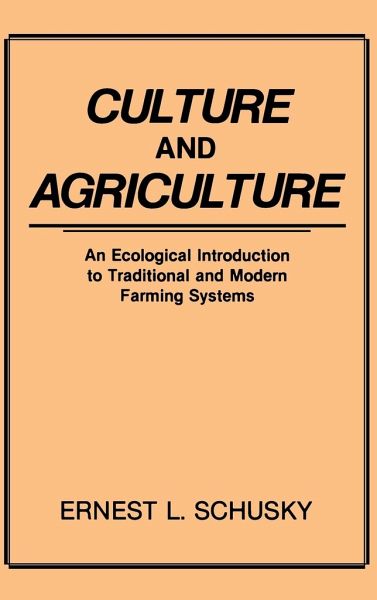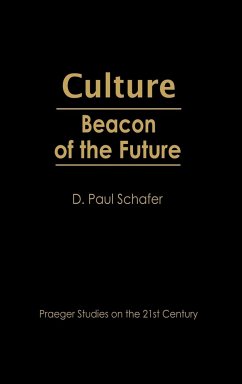
Culture and Agriculture
An Ecological Introduction to Traditional and Modern Farming Systems
Versandkostenfrei!
Versandfertig in 1-2 Wochen
87,99 €
inkl. MwSt.

PAYBACK Punkte
44 °P sammeln!
In the Foreword to Culture and Agriculture, distinguished anthropologist John W. Bennett writes Dr. Schusky's book is welcome. It marks a point of maturity for anthropology's interest in agriculture, a distillation of decades of research and thought on the most important survival task facing humankind, the production of food. Although applauded by a specialist in the field, Schusky's book is specifically written for the general reader who is interested in agriculture. It offers a historical overview of the two major periods of agriculture--the Neolithic Revolution, which occurred when humans i...
In the Foreword to Culture and Agriculture, distinguished anthropologist John W. Bennett writes Dr. Schusky's book is welcome. It marks a point of maturity for anthropology's interest in agriculture, a distillation of decades of research and thought on the most important survival task facing humankind, the production of food. Although applauded by a specialist in the field, Schusky's book is specifically written for the general reader who is interested in agriculture. It offers a historical overview of the two major periods of agriculture--the Neolithic Revolution, which occurred when humans initally domesticated plants and animals, and the Neoclaric Revolution, which began the introduction of fossil fuel into agriculture in the twentieth century. Culture and Agriculture dramatizes the extensive changes that are occurring in modern agriculture due to the intensified use of fossil energy. The book details how the overdependence on fossil energy, with its looming exhaustion, is a major cause of pessimism about food production. The book also addresses the possible solutions to this scenario--conservation steps, an increase in the mix of solar energy, and an emphasis on human labor--which hold out hope for the future. Part I introduces the discovery or domestication of plants and animals (the Neolithic), along with the later use of irrigation, in order to show that most agricultural development, until the twentieth century, occurred between 5,000 and 10,000 years ago. Part II presents a brief survey of agricultural history which demonstrates that hunger had more to do with inequity in the social system than in the amounts of food produced. Agricultural history also emphasizes how little change occurred in agriculture from 5,000 years ago until the twentieth century, when the use of fossil energy revolutionized food production. In assessing the future of agricultural development, Schusky underscores the importance of economic and political policies that emphasize equity in distribution of wealth and government services. This book should appeal to the general reader interested in agriculture, rural sociology, or anthropology.














